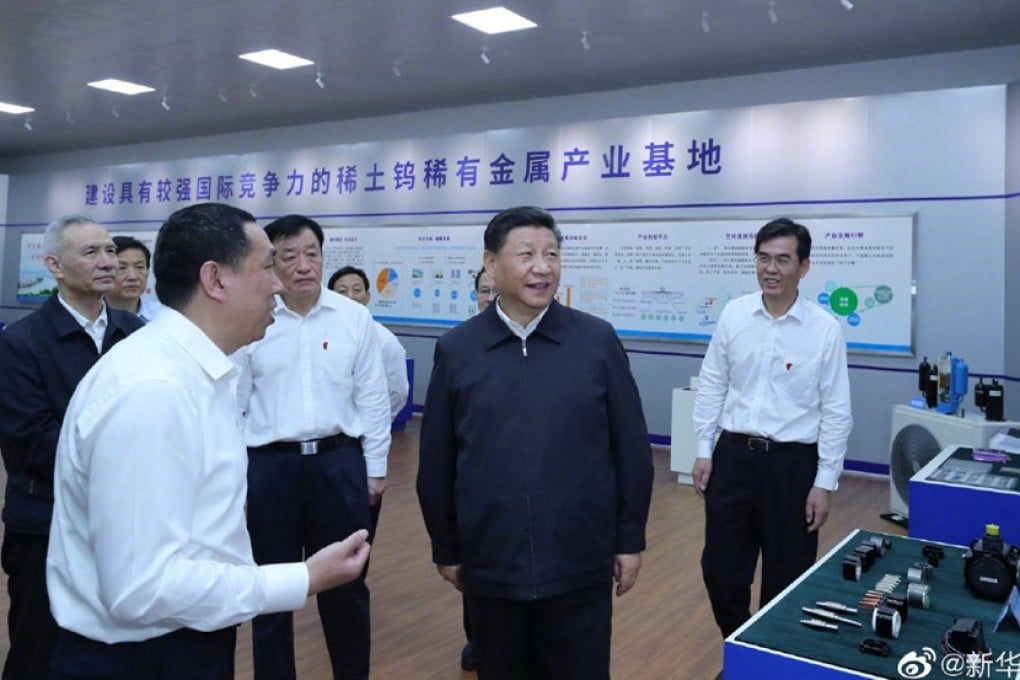Advertisement
Chinese President Xi Jinping sounds Long March rallying call as US trade war tensions rise
- Trip to Ganzhou includes stop at major producer of rare earths, minerals essential to some low-carbon technology and left off US tariffs list
- He was accompanied by Vice-Premier Liu He, his most trusted adviser and China’s top trade negotiator in the year-long talks with the United States
Reading Time:3 minutes
Why you can trust SCMP

Chinese President Xi Jinping has sought to tap into the “Long March” spirit of endurance to rally the public as trade and technology tensions rise with the United States, observers said.
In his first domestic trip since the escalation of the US-China trade war this month, Xi visited one of the country’s major rare earths mining and processing facilities in Ganzhou, Jiangxi province, state news agency Xinhua reported on Monday.
He also paid respects at a monument in Yudu, a county in the city, marking the start of the Communist Party’s Long March 85 years ago, the report said.
Advertisement
Xi was accompanied by Vice-Premier Liu He, Xi’s most trusted adviser and China’s top trade negotiator in the year-long talks with the US.
State media gave few details of the trip and made no mention of the trade war, but analysts said the president’s visit sent a strong message of China’s determination in the stand-off.
Advertisement
Advertisement
Select Voice
Select Speed
1.00x